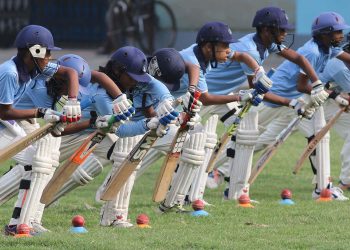Kagiso Rabada is confident he is prepared to lead a revitalized South African assault to the nation’s first ICC Men’s Cricket World Cup victory. Four years ago, the Proteas were unable to go past the group stage, but this year, they are yet to experience a series loss in ODIs.
The team’s aspirations have been dashed by injuries to fellow quicks Anrich Nortje and Sisanda Magala, but Kagiso Rabada optimism hasn’t been dampened by these setbacks.
“One thing we have never lacked as South Africans is belief, so going into the tournament we do believe we can win it,” said Kagiso Rabada, whose team’s campaign gets underway on October 7 when they take on Sri Lanka in Delhi.
“We have the players to win this championship, so perhaps we can reach our first final.
It will be challenging, but it will also be extremely fun.
The opportunity to play against the finest players in the world and compete for a single reward is exciting, and we welcome the challenge.
After a 3-2 series victory over Australia, the four-time semifinalists, who struggled in 2019, have improved and are now ranked fourth in the Men’s ODI Team Rankings. One of eight players from the group that competed in England four years ago, Kagiso Rabada, who is 28 years old, is relishing the responsibility of serving as one of the team’s senior statesmen and assisting captain Temba Bavuma in laying out the team’s strategy for success.
“The 2019 World Cup was my first, and I wasn’t successful at all,” Kagiso Rabada concluded.
“I learned from that that team cohesion is the most crucial element because teams win World Cups, not individuals.
“I have come to understand that I am a leader in that environment as I have gotten older and have accumulated more caps.
“I want to help set how we play as a collective by knowing my own strengths and highlighting them, understanding what drives me, and by listening to other players,” the player said.
Kagiso Rabada also has extensive understanding of subcontinental conditions with to his success in the Indian Premier League (IPL) over a number of seasons.
Since the beginning of last year, his national team has also participated in 11 white-ball matches in India, and he believes that their combined expertise could set them apart from the competition.
“It does help when you understand the conditions in the various grounds, and having played in India for all these years, it gives you a familiarity on how to go about your tactics,” the player continued.
“While the majority of our team has played in India, it is still vital to exchange experiences with others who haven’t played as much.
Finding ways to succeed is important since the conditions are dryer and the wickets are more conducive to batters in India.
“Managing the noise and distractions is crucial, and I believe it’s all about maintaining focus and avoiding being affected by the crowd.
But it’s also thrilling to perform in front of tens of thousands of shouting fans in crowded stadiums; it’s an honor.










 Win Projections to be updated soon
Win Projections to be updated soon








































































